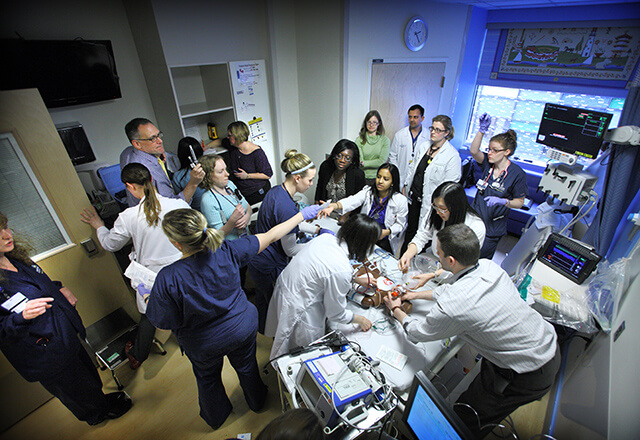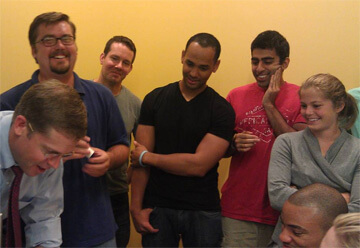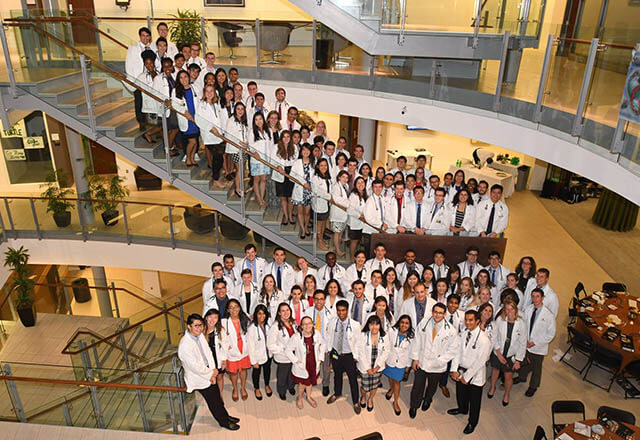Mission Statement and Education Program Objectives

The mission of the Johns Hopkins School of Medicine is to prepare physicians to practice compassionate clinical medicine of the highest standard and to identify and solve fundamental questions in the mechanisms, prevention and treatment of disease, in health care delivery and in the basic sciences.
The aim of the predoctoral medical curriculum at the Johns Hopkins School of Medicine is to prepare a diverse group of physician-leaders to improve the health of a diverse population through patient-centered medical practice and by addressing fundamental questions related to human health and disease; health care delivery; the medical humanities; and the basic sciences. As a measure of their competence, every graduate of the Johns Hopkins University School of Medicine will:
The Science and Practice of Medicine
- Apply scientific principles and a multidisciplinary body of scientific knowledge to the diagnosis, management, and prevention of clinical problems.
- Understand the variation in the expression of health and disease through critical evaluation of biomedical research.
Clinical Competence
- Obtain a sufficient level of medical knowledge to understand the basic facts, concepts, and principles essential to competent medical practice.
- Exhibit the highest level of effective and efficient performance in data gathering, organization, interpretation and clinical decision-making in the prevention, diagnosis, and management of disease.
The Social Context of Medicine
- Identify and respond equitably to the social, behavioral, economic and structural factors that influence health, disease, health care, and biomedical science.
Communication
- Demonstrate effective and compassionate interpersonal communication skill toward patients and families necessary to form and sustain effective medical care.
- Present information and ideas in an organized and clear manner to educate or inform patients, families, colleagues and community.
Professionalism
- Display the personal attributes of compassion, honesty and integrity in relationship with patients, families and the medical community.
- Adhere to the highest ethical standards of judgment and conduct as it applies to the health care milieu.
- Demonstrate a critical self-appraisal in their knowledge and practice of medicine, as well as receive and give constructive appraisal from/to patients, families, colleagues and other healthcare professionals.
Lifelong Learning
- Understand the limits of personal knowledge and experience and will demonstrate the intellectual curiosity to actively pursue the acquisition of new knowledge and skills necessary to refine and improve their medical practice and/or to contribute to the scientific body of medical knowledge.



